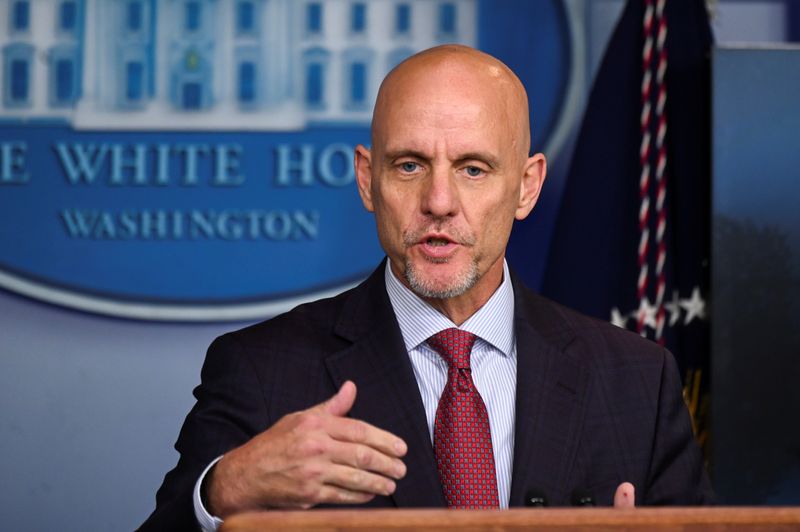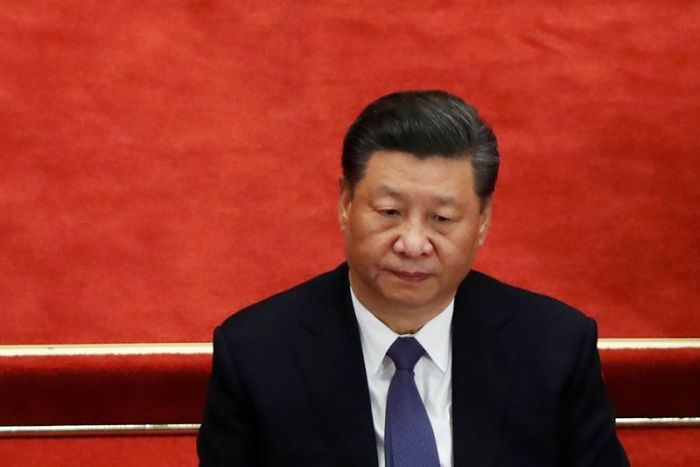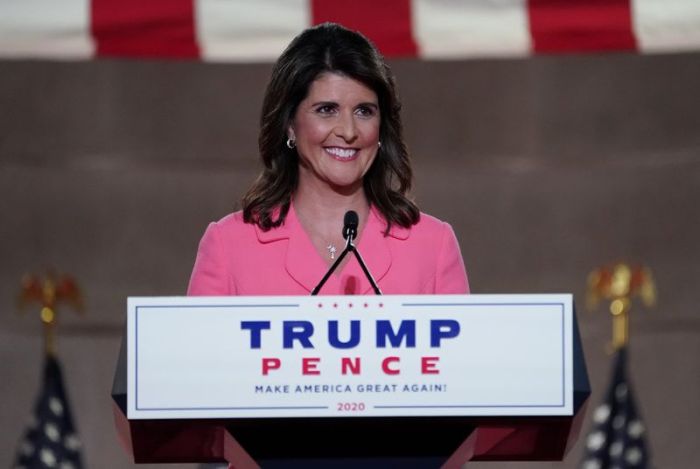WASHINGTON (Reuters) – The U.S. Food and Drug Administration (FDA) does not harbor “deep state” elements, the agency’s head told Reuters on Monday, rejecting criticism from President Donald Trump that staff there were trying to delay a coronavirus vaccine.
Dr. Stephen Hahn said he was completely confident that FDA workers were focused solely on the interests of the American people during the coronavirus pandemic.
Without evidence, Trump on Saturday accused members of the so-called “deep state” working within the FDA of complicating efforts to test COVID-19 vaccines in order to delay results until after the Nov. 3 presidential election.
“I have not seen anything that I would consider to be ‘deep state’ at the FDA,” Hahn told Reuters in an interview. Trump’s use of the term “deep state” appears to refer to long-serving government employees he believes are determined to undermine his agenda.
Hahn said he had a solid relationship with Trump, a Republican whose re-election chances in November have been dampened by public discontent over his handling of the coronavirus pandemic.
“I enjoy a very good relationship with the president and I have discussed our decisions with him, and I feel very comfortable and continue to feel comfortable with that relationship,” Hahn said.
Trump’s tweet, which tagged the commissioner, said: “The deep state, or whoever, over at the FDA is making it very difficult for drug companies to get people in order to test the vaccines and therapeutics. Obviously, they are hoping to delay the answer until after November 3rd.”
Trump has talked up the possibility of a coronavirus vaccine coming soon and the White House is eager to have positive news on the development of one before the election.
Trump and his advisers are also eager to show that his administration is moving quickly to find both a vaccine and treatments for the disease, even as scientists have warned that time is required for testing.
Hahn said the FDA’s recent authorization of a coronavirus treatment using blood plasma from recovered patients was not made because of political pressure and emphasized that on his watch any decision on a vaccine would be based on science.
Peter Marks, director of the FDA’s Center for Biologics Evaluation and Research and a regulator who will help decide the fate of coronavirus vaccine candidates, has said he would resign if the Trump administration approved a vaccine before it was shown to be safe and effective.
Hahn said he had spoken to Marks and respected his judgment.
“I’m not going to … speculate about what I would do,” in such a situation, he said. “But what I can tell you is that I will not participate in a decision at FDA that’s made upon anything other than data and science. That I can assure you,” he said.
Trump hailed the FDA “emergency use authorization” for convalescent plasma on Sunday, shortly before the beginning of this week’s Republican National Convention.
Hahn said the decision was made by the agency’s scientists and that he concurred with it after looking at the data.
Hahn acknowledged that Dr. Anthony Fauci, the top U.S. infectious diseases expert, and Dr. Francis Collins of the National Institutes of Health had expressed concern that the data did not justify the authorization.
“Previously when we did have a discussion with them, they were concerned that the data might not be robust enough. That’s why we did the validation … to provide further confirmation,” Hahn said.
Fauci told Reuters on Monday that premature approval of a COVID-19 vaccine could undermine trials of other vaccine candidates.
Hahn said there was medical urgency to develop a vaccine.
“But we want to be as sure as we possibly can regarding safety and efficacy,” he said.
(Reporting by Jeff Mason; Editing by Peter Henderson and Tom Hogue)

























